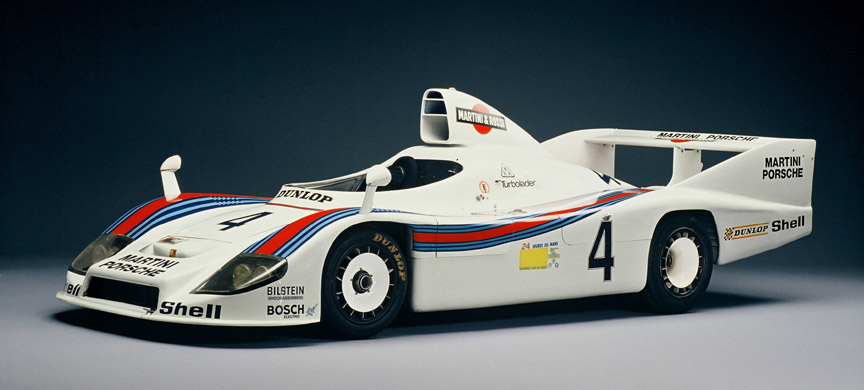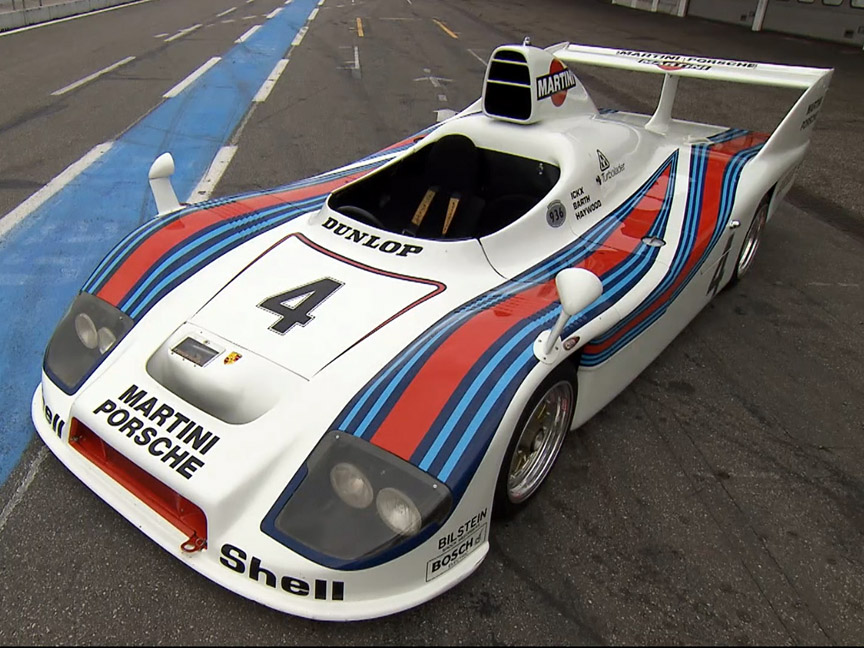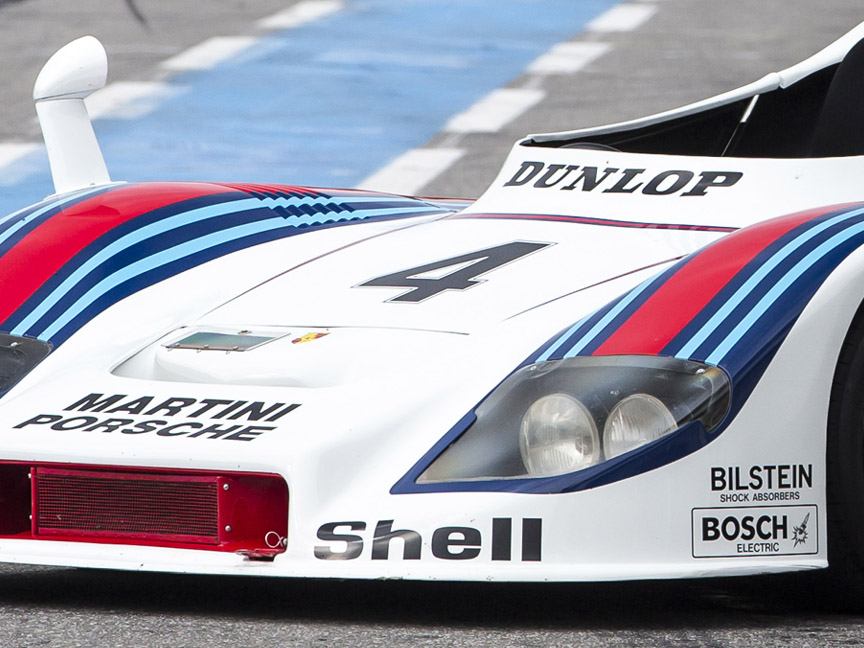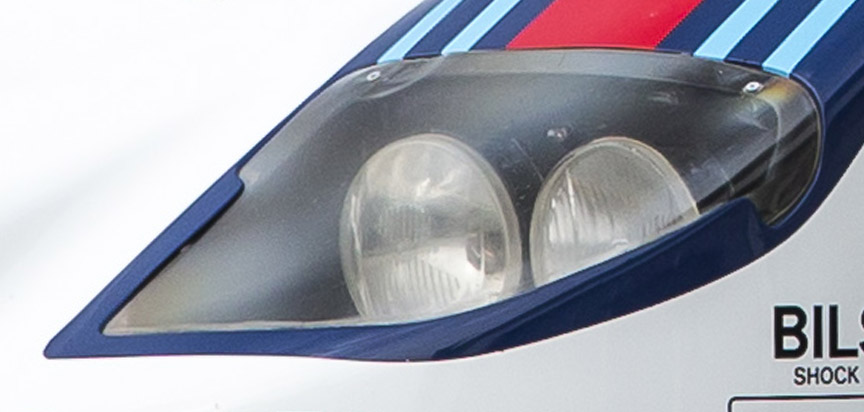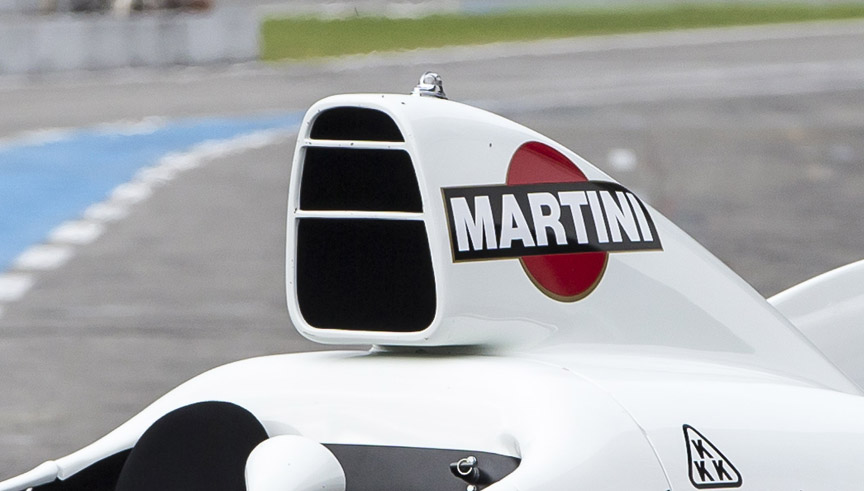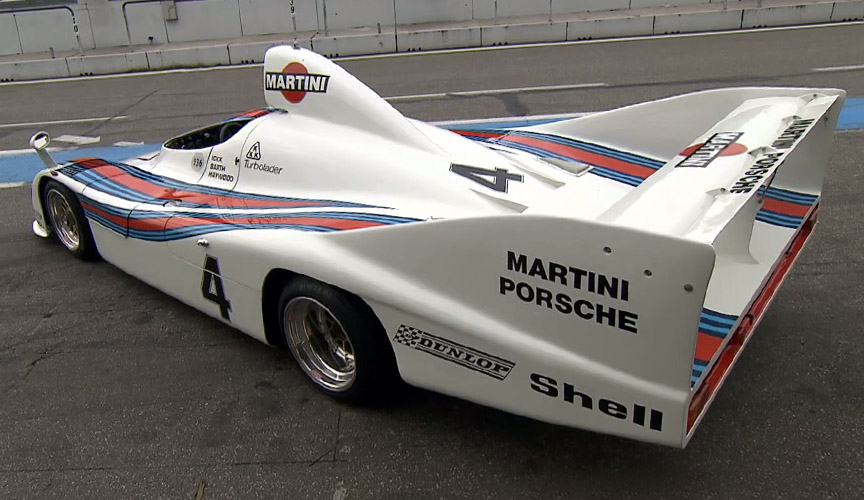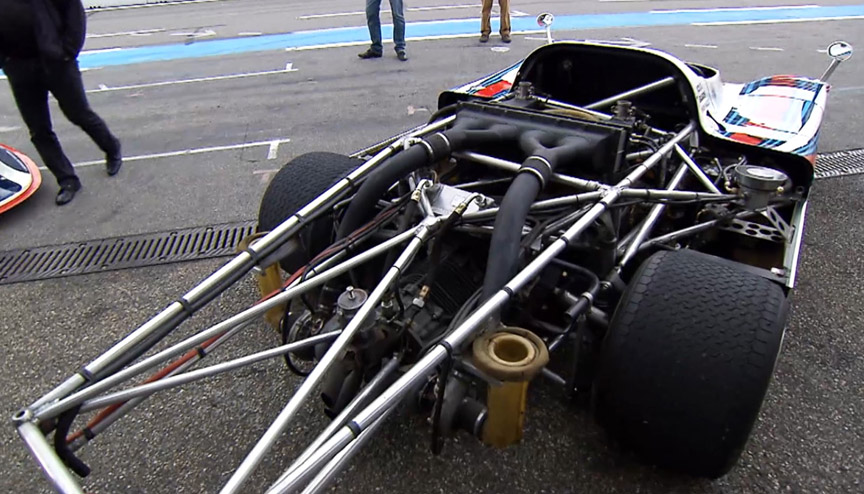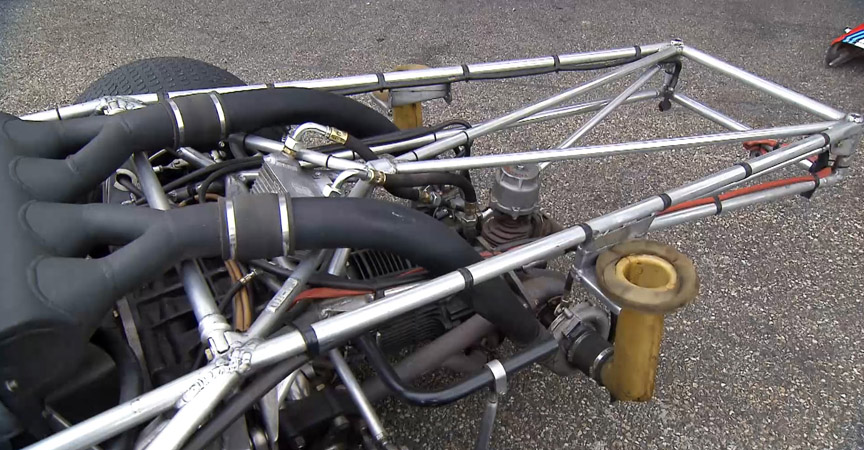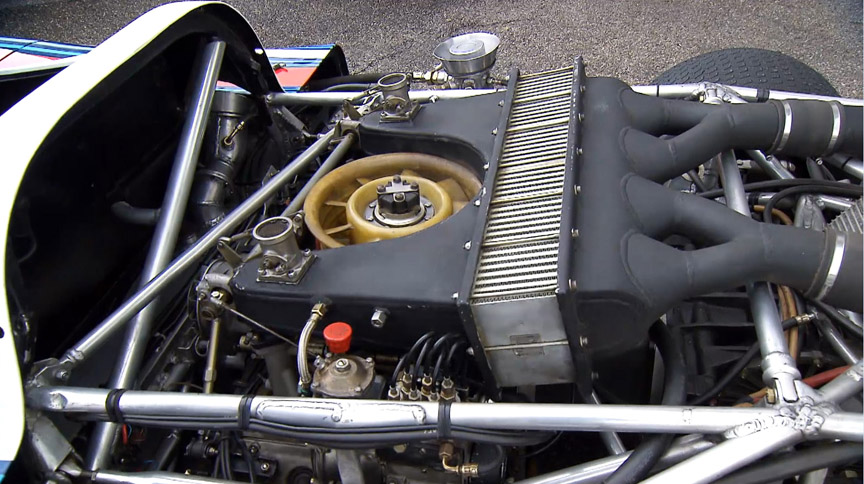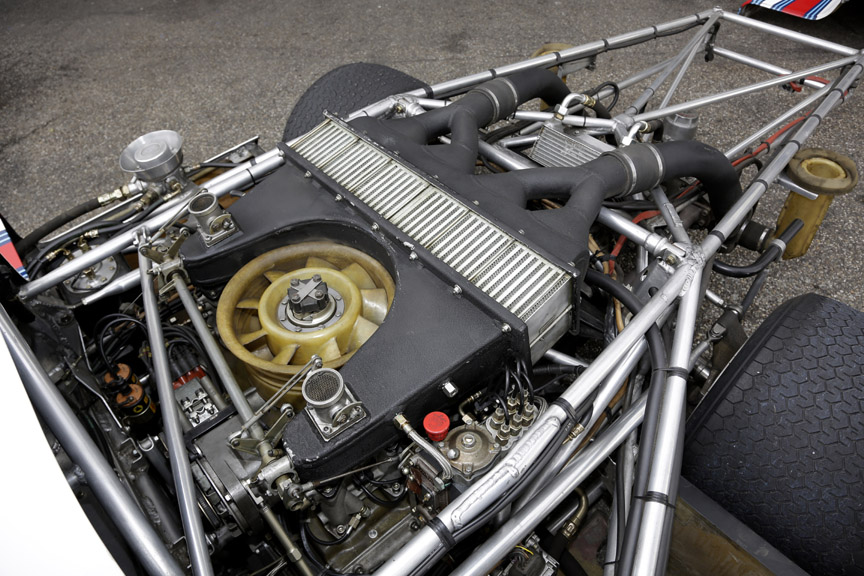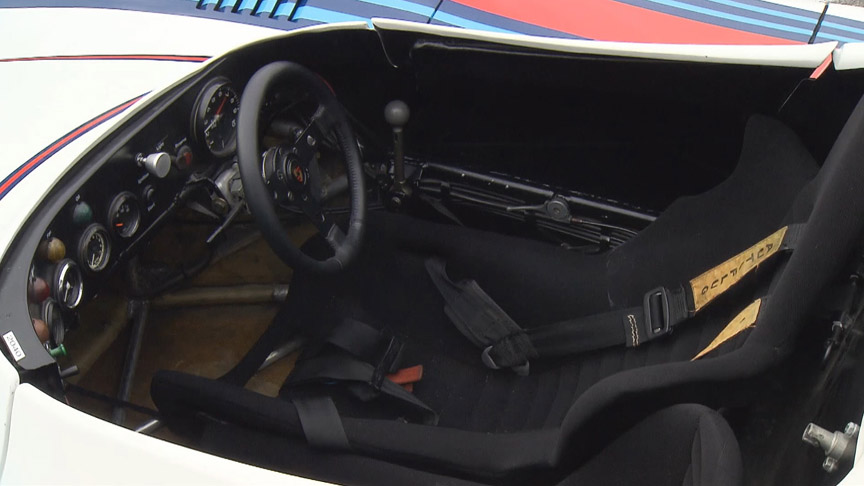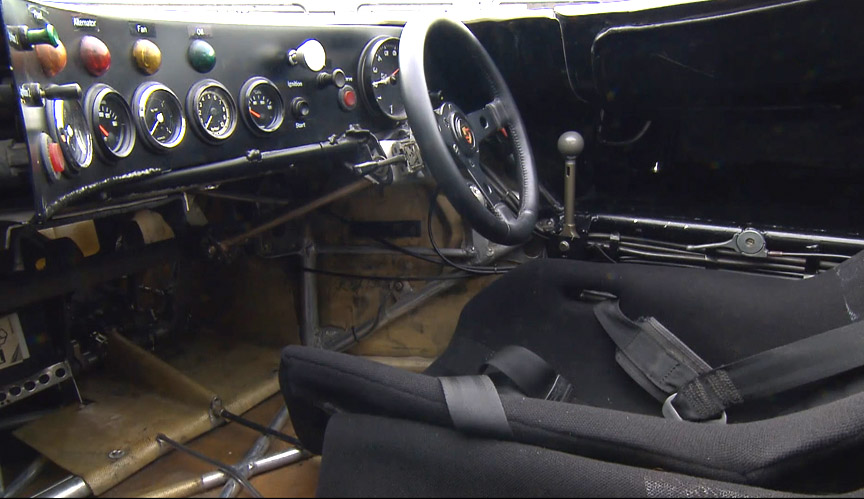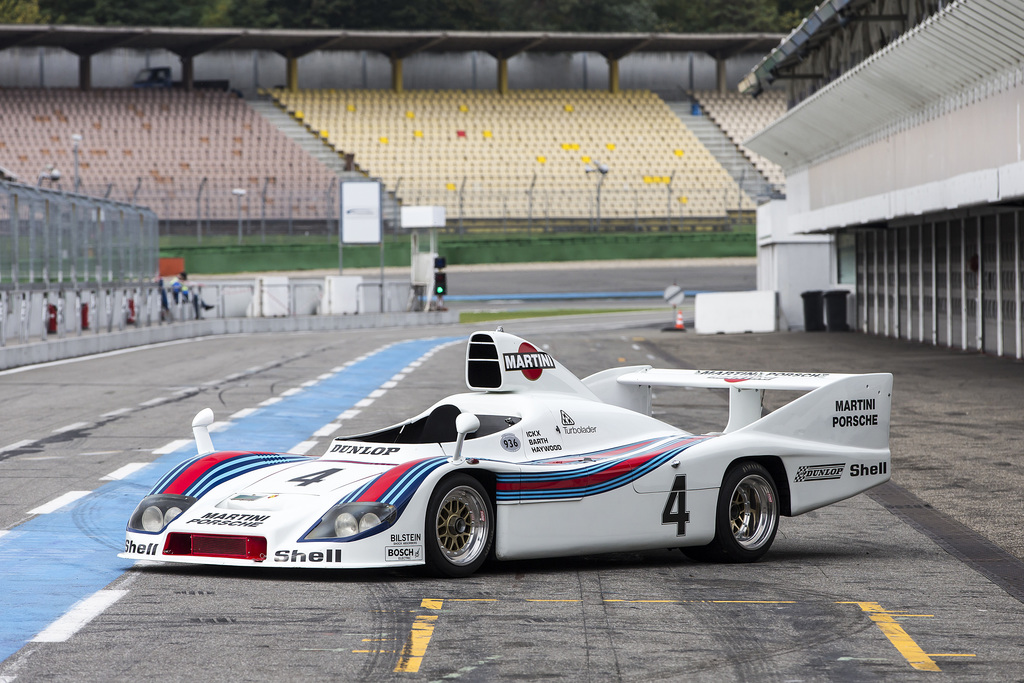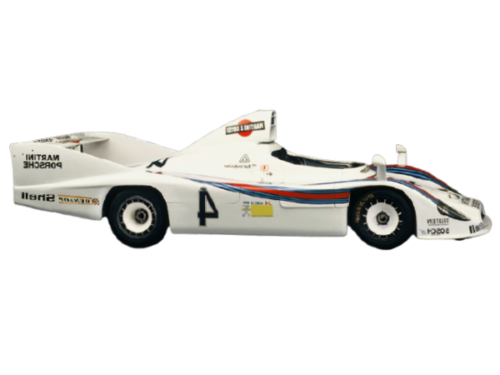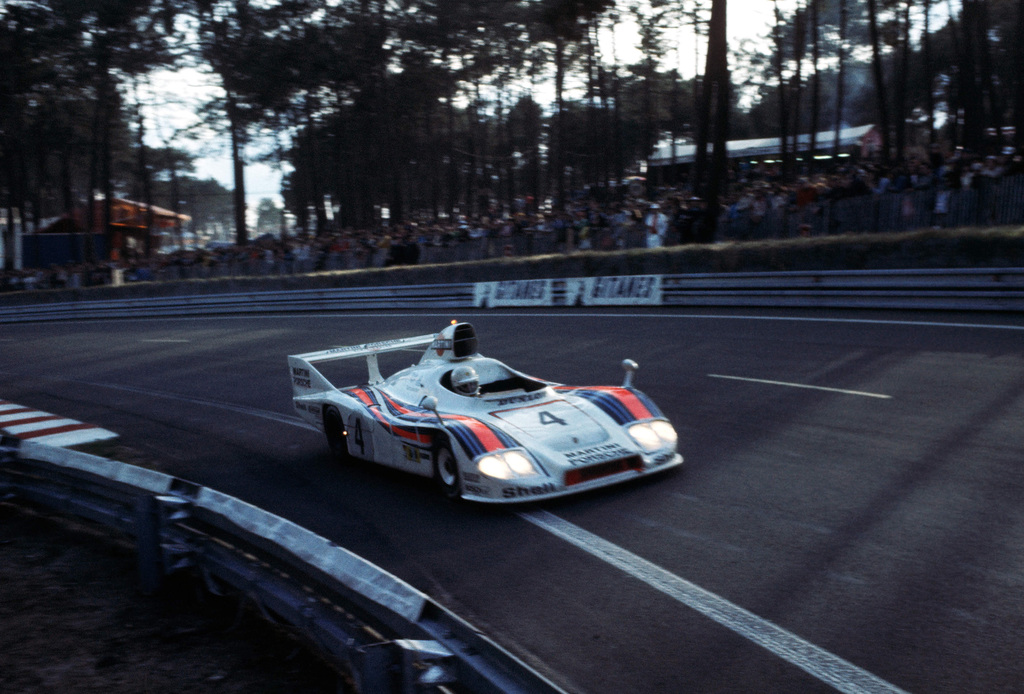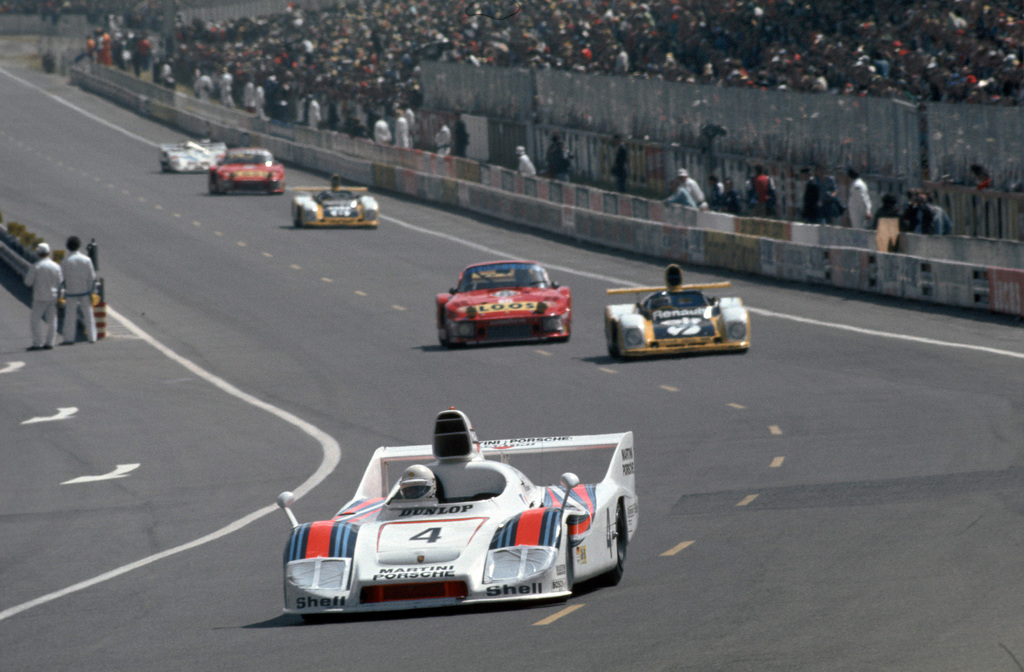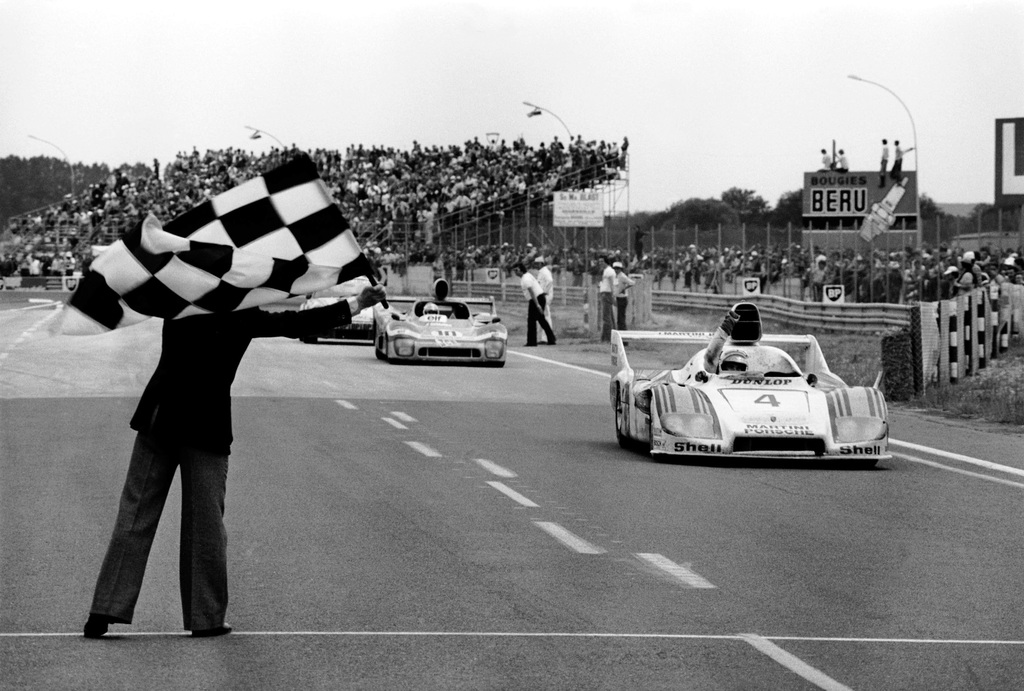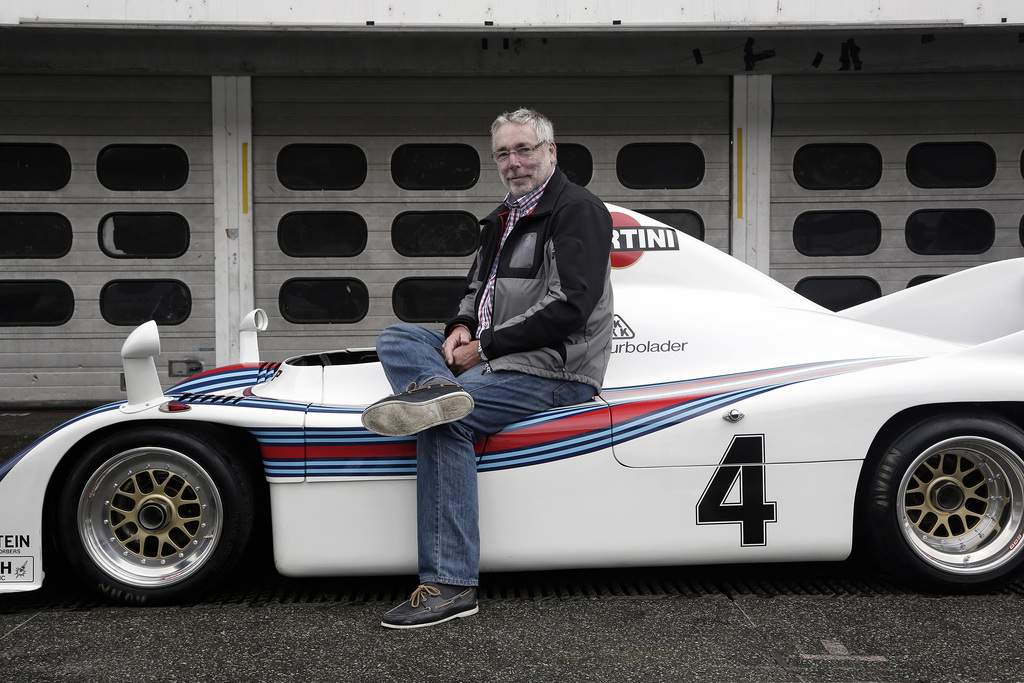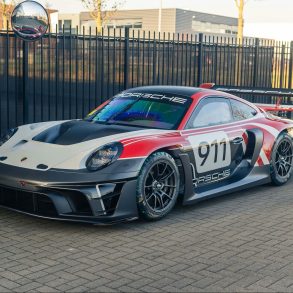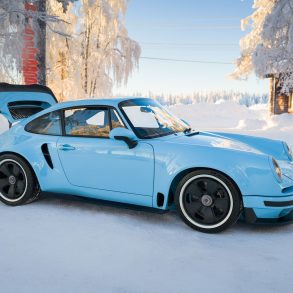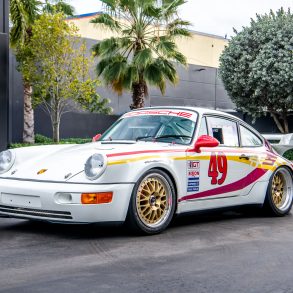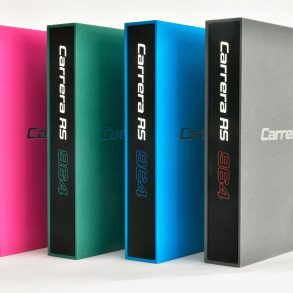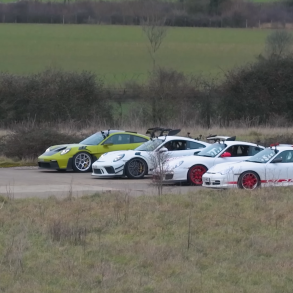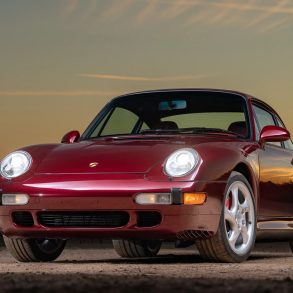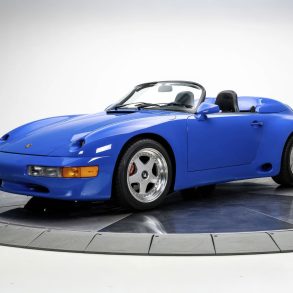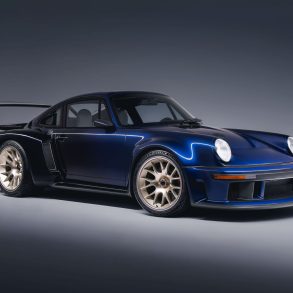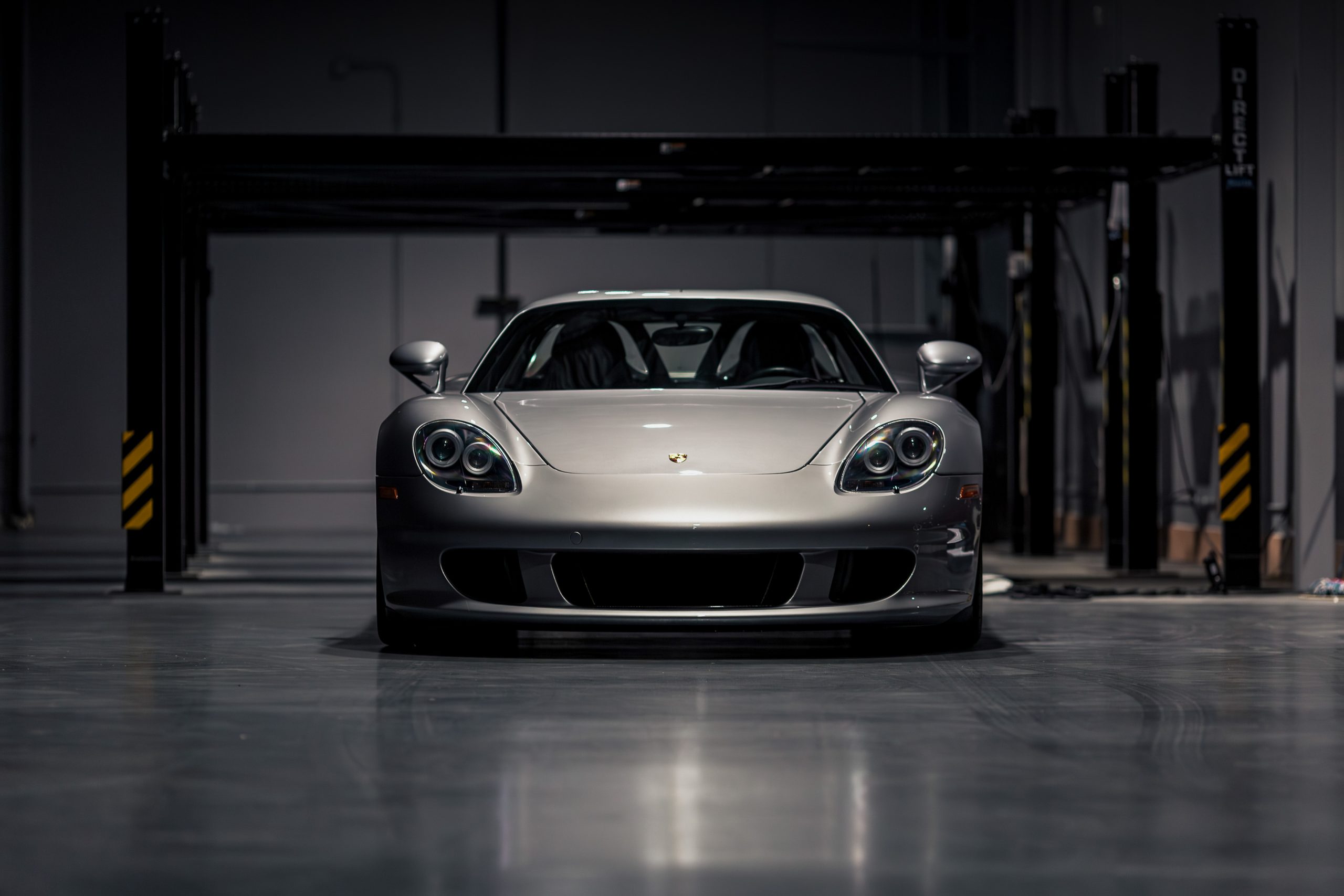Porsche 936/77 (1977)
Premiere: 1977 June, Le Mans / Engine: 2.1-litre flat-6, bi-turbo / Gearbox: 5-speed / Achievements: 1977 Le Mans winner
In 1977, Porsche returned to Le Mans with the 936/77. Its body was smaller, lower, shorter and further refined aerodynamically. The engine now featured two turbochargers and delivered 20 more horsepower. At one of the most dramatic races in history, Jacky Ickx, Jürgen Barth and Hurley Haywood slayed the armada of four Renault works cars and two factory-supported “Mirage” with Renault motors. In the year 1981, the 936 celebrated a sensational comeback with another overall Le Mans victory.
The Story
While in 1976 the Group 6 category of World Sportscar Championship was dominated with the 936, in 1977, the 936 was prepared only for the Le Mans 24 hour race (which wasn’t part of the WSC anyway). The two chassis from previous year (936-001 and -002) were fitted with new bodywork for 1977. Although difficult to spot for the untrained eye, all the body parts on the 936/77 were new compared to the 936/76. The engine now featured two turbochargers, new intercooler and had a bit more power (officially 397 kW). The weight was in the region of 750 kg/1650 lb. Wheel sizes were 10.5×15″ at front and 15×15″ at rear – fifteen inch wide rear wheels!
After qualifications, two Renault Alpine A442 secured their starting positions in the first row. Third in qualification was the 936/77 of Jacky Ickx and Henri Pescarolo, followed by another two Alpines. Then came the race day, June 12, and one of the Alpines went into flames already on the warm-up lap. Early in the race the #4 Porsche 936/77 (936-001) of Jürgen Barth and Hurley Haywood suffered an injection pump failure. The car returned to the track after 38 minutes in the pits and was nine laps down from the leading Alpine.
On lap 46, the #3 Porsche 936/77 (936-002) of Ickx and Pescarolo suffered an engine damage and limped to the pits, smoking. It was the end for #3. Ickx joined Barth and Haywood in the #4 Porsche and drove for more than 7 hours. On June 13, the Renault engines started to give up one by one. Finally, all the Renault Alpines were out.
It was the last hour of the race and the #4 Porsche 936 was leading with a huge gap when it was time for its engine to wear out like it had happened to all the other top challengers. A disaster had happened inside one of the cylinders, but luckily the engine didn’t crash. Mechanics cut the fuel supply to the cylinder with the damaged piston and the car was kept in the pits until the race clock had run for 23 hours and 50 minutes. Then the car was sent out to do its final two laps with moderate pace, but still to finish as the winner. As it is, Le Mans is not so much about beating the competitors than beating the 24 hours!
The 936/77 cars were made only for a single race, the 1977 Le Mans. In 1978, the 936/77 with chassis number 936-002 was used to tackle Le Mans again together with two new 936/78 cars (one of which was built using 1977 Le Mans winning chassis 936-001). The 936/77 (936-002) scored 3rd at the 1978 Le Mans driven by Reinhold Jöst, Hurley Haywood and Peter Gregg.
Before the 936-002 was given to Porsche Museum collection, in the spring of 1979 it was wrapped in Porsche’s 1979 Le Mans sponsor Essex Overseas Petroleum colors for promotional reasons (in the race, 936/78 cars were used). After the Essex party in Paris on May 3, 1979, the 936-002 got its Martini look back.
For the 1980 season, Joest Racing built one more car from spare parts acquired from Porsche. In the Martini Racing livery and driven by Reinhold Jöst (Joest) and Jacky Ickx, the car finished second at Le Mans.
The Joest built car was used again in 1981 at Silverstone 6 hours and at Le Mans, but accidents ended both races for it. Driven by Jochen Mass, the Joest Porsche 936 won the 1981 Interserie race at Most in Czechoslovakia. For the 1982 season, the Joest Porsche got the engine with water-cooled heads which required the NACA ducts on the sides like on the 936/78. Bob Wollek competed the full 1982 season of DRM (Deutsche Rennsport Meisterschaft, German Racing Championship) and won it. Wollek also won the 1982 Interserie Most race and scored 3rd at the Kyalami 9 hours with team mate Giorgio Francia. For 1983 season the Joest 936 was fitted with air-cooled engine again and the NACA ducts were deleted (the car looked like 936/77 again). The Joest 936 was last time raced at the 1984 Interserie Nürburgring race.
In Pictures & Details
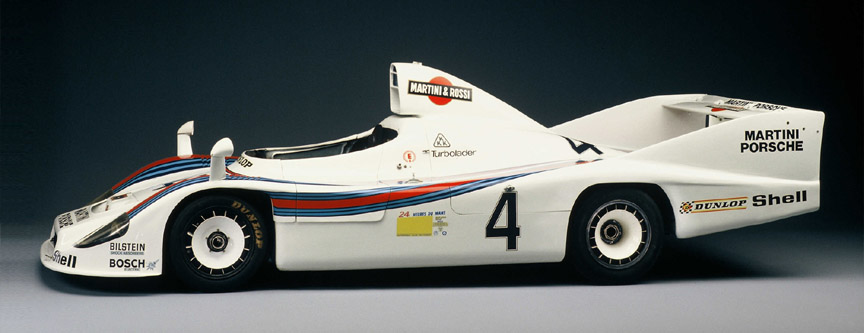
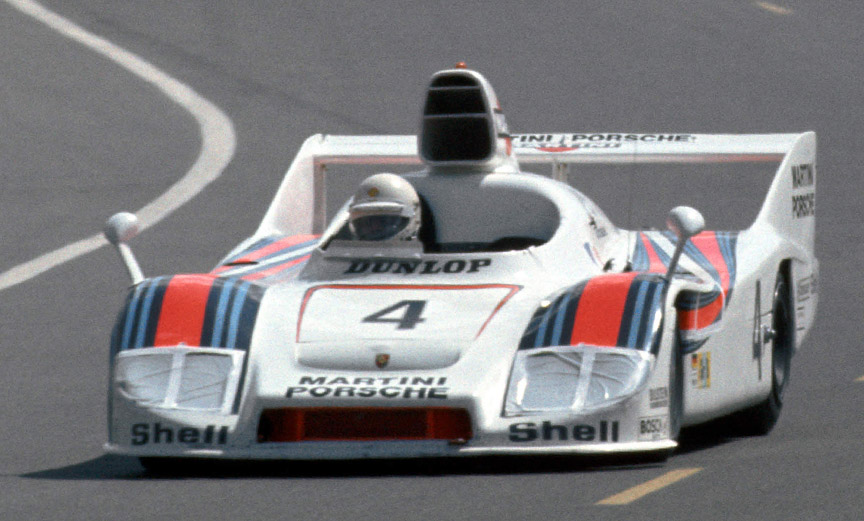
1977 Le Mans documentary, part 1: pre-race onboard with Jochen Mass
1977 Le Mans documentary, part 2: first half of the race
1977 Le Mans documentary, part 3: second half of the race
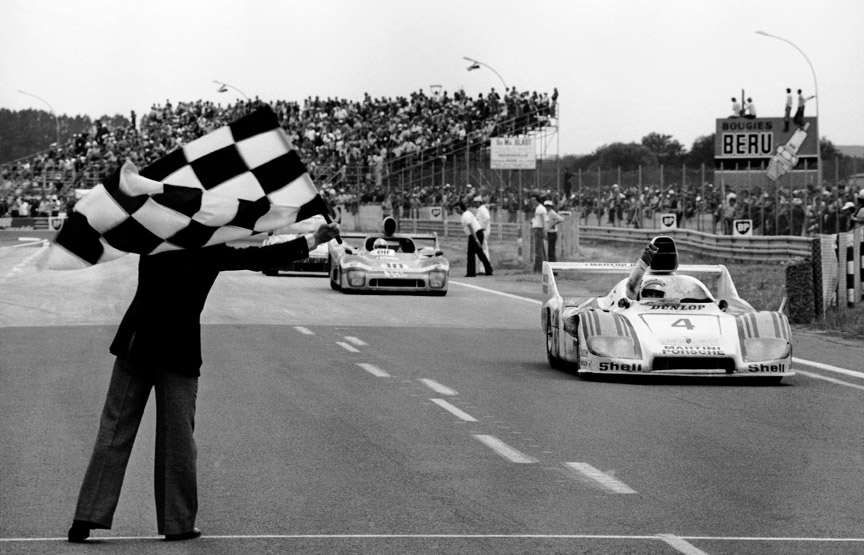
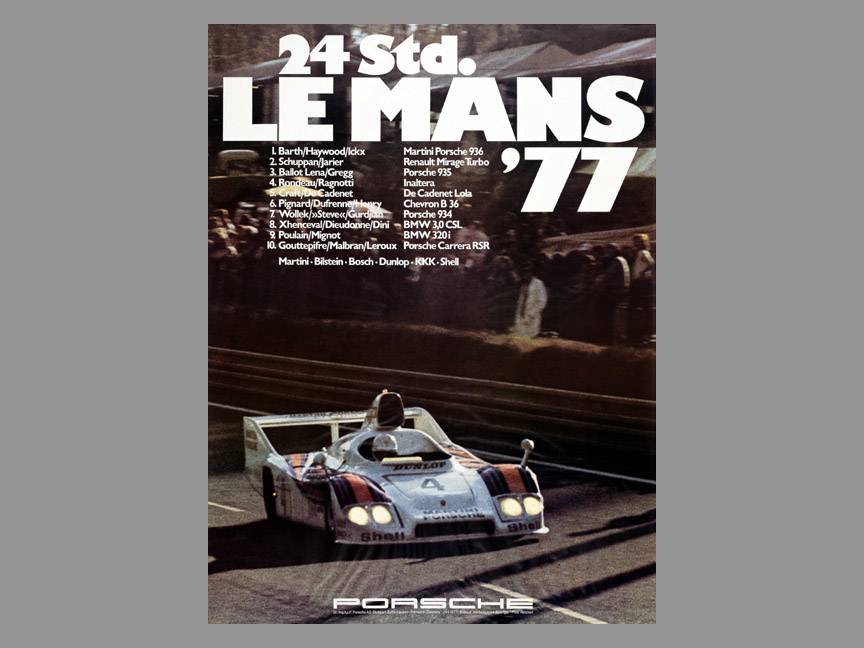
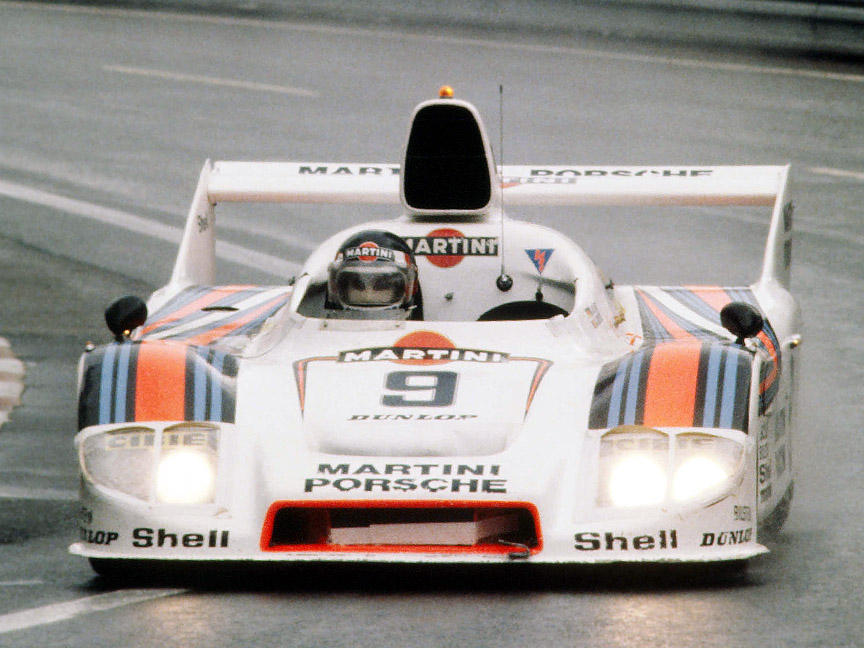
Porsche 936/77 in Porsche Museum collection
